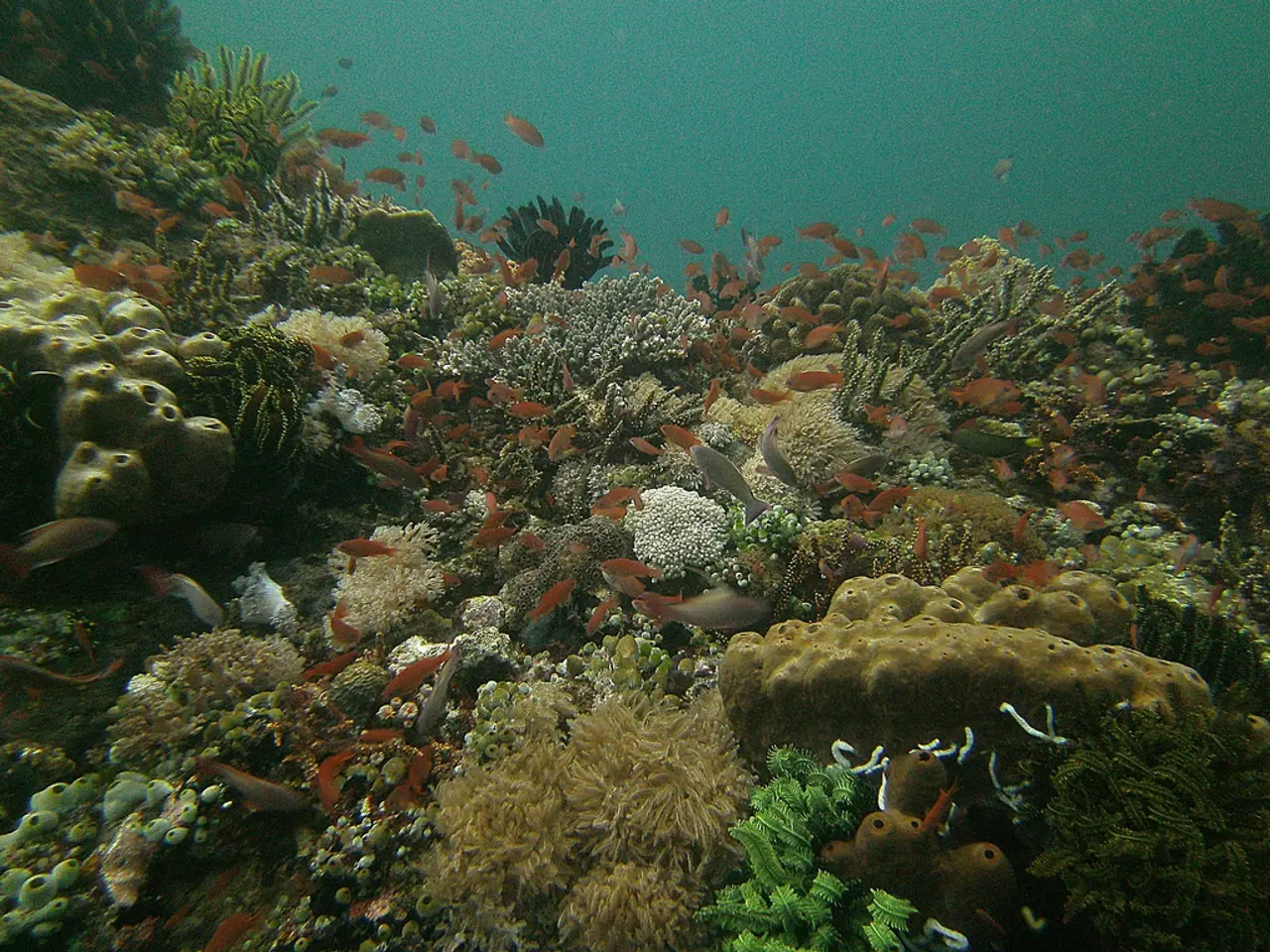UK seas witness unprecedented heat, sparking significant shifts in marine ecosystems
The recent marine heatwave that hit the waters around the UK and Ireland in May 2024 has left a lasting impact on marine life and ecosystems. The Met Office's data, while still provisional and set to be finalised in the coming months, suggests that this heatwave has caused disruptions to biodiversity, shifts in fish species distributions, oxygen depletion, harmful algal blooms, and damage to fisheries and aquaculture.
The heatwave, which saw sea surface temperatures rise by 4°C off the Irish coast, has triggered oxygen depletion in the water due to stratification, leading to fish kills. It has also promoted the growth of harmful algal blooms, which degrade water quality and marine habitats. Moreover, the heatwave has caused shifts in marine species ranges, with cold-adapted fish declining while warm-adapted species expand around the British Isles.
These changes have had significant implications for commercially important fisheries and aquaculture, threatening livelihoods and food security. The heatwaves are part of broader climate trends increasing the frequency and intensity of extreme weather events, further stressing marine and coastal ecosystems.
In Ireland, the 2024 heatwave and similar events have led to warnings about potential ongoing impacts on aquatic life due to higher water temperatures and lower oxygen levels. These changes also affect riverine systems and coastal areas.
The persistence of marine heatwaves around the UK and Ireland drives long-term ecological changes, reduces ecosystem resilience, and may push marine environments toward critical tipping points resulting in biodiversity loss and diminished ecosystem services.
As the world grapples with the effects of climate change, the oceans, which have taken up about 90% of the Earth's excess heat from humanity's emissions of planet-warming gases, are experiencing unprecedented warming. This warming is evident in the Atlantic, where the overall trend is "well above the 1991-2020 long-term average".
The warming trend has led to dramatic changes in marine life. Unusual species like octopus, bluefin tuna, and mauve stinger jellyfish have been observed in UK waters. Atlantic bluefin tuna have been seen along Britain's southwest coast and have been increasingly detected in Irish waters.
The seas around the UK have had their warmest start to the year since records began, with the average surface temperature of UK waters in the seven months to the end of July more than 0.2 degrees higher than in any year since 1980.
However, there is some relief for Ireland as seawater temperatures have declined since the May heatwave, but remain above normal in the east and south. Met Eireann climatologist Paul Moore has confirmed this.
Despite this decline, the seas around Ireland and the UK are still warmer than they were a few decades ago, a trend driven by the burning of fossil fuels. The Irish Marine Data Buoy Observation Network confirmed sea surface temperatures were up to 4 degrees above average during the heatwave.
As we move forward, it is crucial to monitor and address the impacts of marine heatwaves on our marine ecosystems and take steps to reduce greenhouse gas emissions to mitigate the effects of climate change on our oceans.
The marine heatwave in May 2024, causing sea surface temperatures to rise by 4°C off the Irish coast, is part of a broader warming trend in the Atlantic, where overall temperatures are "well above the 1991-2020 long-term average". This warming has led to a shift in marine species ranges, with cold-adapted fish declining and warm-adapted species expanding around the British Isles.
The warming trend has also driven long-term ecological changes, reducing ecosystem resilience and potentially pushing marine environments toward critical tipping points resulting in biodiversity loss and diminished ecosystem services. As we move forward, it's crucial to monitor and address the impacts of marine heatwaves on our marine ecosystems and take steps to reduce greenhouse gas emissions to mitigate the effects of climate change on our oceans, including health-and-wellness issues and the future of environmental-science research.




